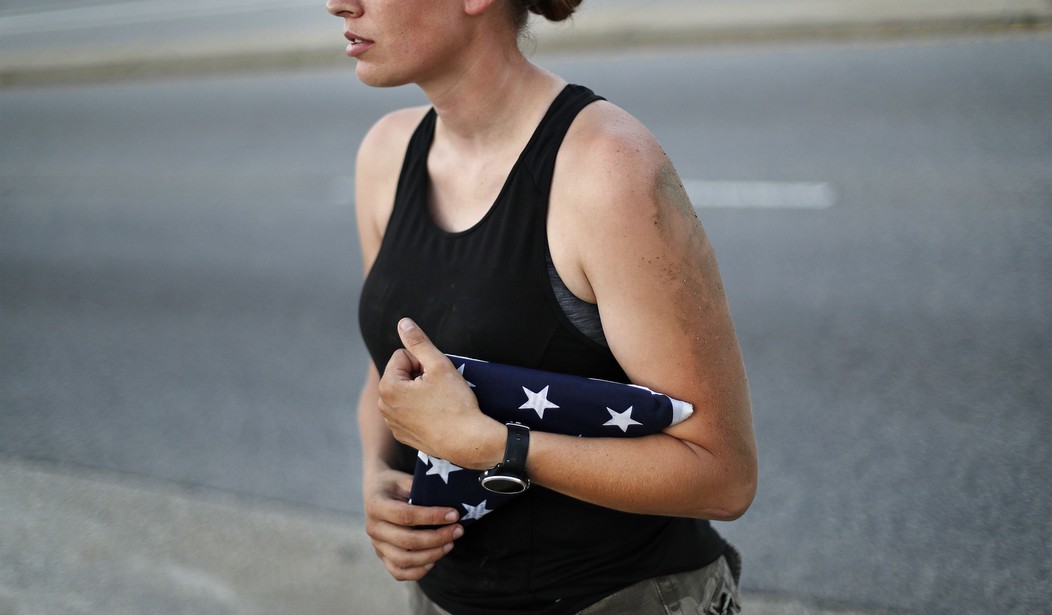The tragedy of suicide is heartbreaking. In instances of veteran suicide, the tragedy can be especially jarring because it shatters expectations.
The idea of self-harm or taking one's life seems antithetical to our nation’s warriors. That’s why I was intrigued to read of Kaitlin Wasburn’s reporting in the Kansas City Star on Kindall Johnson, a Marine veteran who tragically committed suicide by firearm.
For me, it’s personal. I am a retired Marine of 25 years. I was promoted to the senior enlisted rank of Master Gunnery Sergeant. I served multiple combat tours in Iraq and Afghanistan. There were other deployments around the world too, including Albania, Zaire, Haiti and Cuba. My final tour was senior enlisted advisor to the Assistant Secretary of the Navy for Wounded Warrior issues for both the Navy and the Marine Corps. That included advising him on preventing suicide in the ranks.
Following my military career, I’m working for the National Shooting Sports Foundation, the firearm industry trade association. Ours is a veteran-heavy industry. I found myself surrounded by veterans with a passion for firearms, hunting and our freedoms.
I also found an industry passionate about reducing and ending suicide by firearms. NSSF partnered with the largest suicide prevention organization in America, the American Foundation for Suicide Prevention. The two organizations realized they needed one another. Gun owners wouldn’t listen to those saying the answer to every tragedy is to take away guns. The industry knew we weren’t the suicide prevention experts.
Both groups know suicide by firearm comprises two thirds of all suicide deaths. It’s also preventable, but not if we treat veterans as broken and discarded burdens. It takes a brave conversation. It takes real solutions. That’s why the Department of Veterans Affairs signed on with the NSSF and AFSP to extend this outreach to prevent suicide by firearm to veterans.
Recommended
It’s disappointing when advocacy groups, including Everytown for Gun Safety, capitalize on suicide tragedies to push an agenda. Addressing suicide is difficult. Blaming guns is easy. The firearm industry agrees intervention is necessary and time and distance saves lives. There are times for those brave conversations; or to temporarily hold on to firearms to prevent someone from hurting themselves.
I’ve done this. I’ve stood on the doorstep of fellow Marines, in the pouring rain in the middle of the night, hugging them to remind them I was there because their life matters to me. I’ve asked for their firearms until they could get the help they needed.
NSSF and AFSP partnered together to offer firearm retailers, ranges and even the Veterans Affairs Department the resources to prevent suicide. It is about saving lives, not about taking away guns or treating veterans’ passions for firearms as a disease to be remedied.
The fact is firearms have also been healing for veterans. I volunteer with several nonprofits that get veterans to gun ranges and out hunting. Some have visible wounds. Others bear those scars deep within. These outings with firearms – the hunting trips and range time – are more about the man and woman and less about the gun.
We call it “screenporch therapy.” It is giving veterans community with others who walked the same path and discussing the issues. Preventing tragedies doesn’t begin with treating the veteran as broken. It begins with connecting with them, providing them healing tools and walking alongside them.
There is much work to be done to end this scourge of veteran suicide. Pat answers of taking guns – and foolishly suggesting they be frozen in a block of ice – only encourages veterans to shut down and refuse help. We can do better. They deserve better.
Mark Oliva is the Director of Public Affairs for the National Shooting Sports Foundation, the firearm industry trade association. He is a retired Marine Master Gunnery Sergeant, veteran of multiple combat tours in Iraq and Afghanistan as well as deployments around the world.

























Join the conversation as a VIP Member